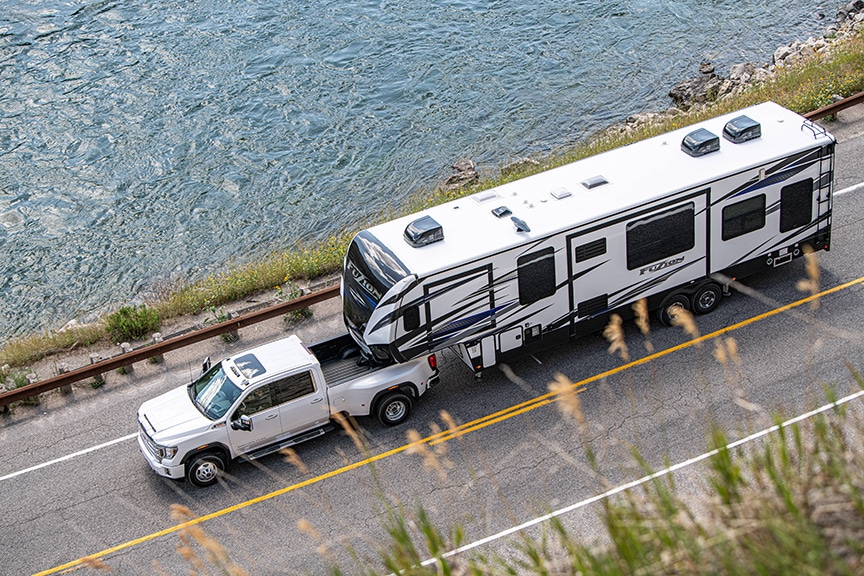AUGUST 2019
Horsepower and Torque Limits
 With HD pickup manufacturers locked into the horsepower and torque race, I’m guessing they’re primarily retuning the same engines and pushing ever closer to the limits of what the parts will handle. At what point will the drive for more horsepower and torque affect engine longevity? To what extent can reduced longevity be mitigated by taking it easy and not burying the go pedal in the floor?
With HD pickup manufacturers locked into the horsepower and torque race, I’m guessing they’re primarily retuning the same engines and pushing ever closer to the limits of what the parts will handle. At what point will the drive for more horsepower and torque affect engine longevity? To what extent can reduced longevity be mitigated by taking it easy and not burying the go pedal in the floor?
Michael Brown
 It’s true that the vehicle and engine manufacturers leave a little “on the table” when the first of a new generation of a specific gas or diesel engine comes out. And why not? They spend bucketloads of money on R&D bringing a new engine to market. So it’s only common business sense that they have some room left to push the power envelope over the next three to five years (usually with software modifications) before they get close to what the powertrain engineers see as the “limit” for those particular parts in that particular powerplant.
It’s true that the vehicle and engine manufacturers leave a little “on the table” when the first of a new generation of a specific gas or diesel engine comes out. And why not? They spend bucketloads of money on R&D bringing a new engine to market. So it’s only common business sense that they have some room left to push the power envelope over the next three to five years (usually with software modifications) before they get close to what the powertrain engineers see as the “limit” for those particular parts in that particular powerplant.
The engine/transmission development teams know exactly where those limits are because they put millions of miles on the engines in dyno rooms and computer simulations, and often push components until they break. So they know at what point they need to reevaluate parts and processes in the development of the next generation — or the development of a completely new engine design.
Ford, Cummins, VM Motori and GM have done just that for the past 20 years with the engines and transmissions we find in our trucks. As torque numbers advance beyond 1,000 lbs-ft, we’ll see new materials and technology emerging that are designed to handle demands placed on heads, engine blocks and all the rotating parts. As engines get stronger, so too does everything else, downstream to the tires. Transmissions and differentials are changing right along with the engines.
Powertrain warranties are good indicators of how much faith the manufacturers have in their products. We expect owners who are vigilant about preventive maintenance, have a lighter right foot and leave the engines stock will reap the benefits of a relatively trouble-free truck long after the powertrain warranty has expired.

Photo: GMC
Join the Conversation
Scroll down to the Leave a Reply box to add your comments to this discussion.
Have a Diesel Tech Question?
To ask Bruce W. Smith a question about maintenance, repairs or upgrades to your diesel truck, SUV or van, go to the Diesel Tech Q&A home page, scroll down to the Leave a Reply box and type in your question. Please include your full name and hometown.
 A respected automotive and RV journalist and longtime Trailer Life contributor, Bruce W. Smith has held numerous editorial titles at automotive and boating magazines, and authored more than 1,000 articles, from tech to trailering. He considers his home state of Oregon a paradise for RVing and outdoor adventure.
A respected automotive and RV journalist and longtime Trailer Life contributor, Bruce W. Smith has held numerous editorial titles at automotive and boating magazines, and authored more than 1,000 articles, from tech to trailering. He considers his home state of Oregon a paradise for RVing and outdoor adventure.
Read More: Diesel Tech Q&A
See Related Column: RV Clinic

